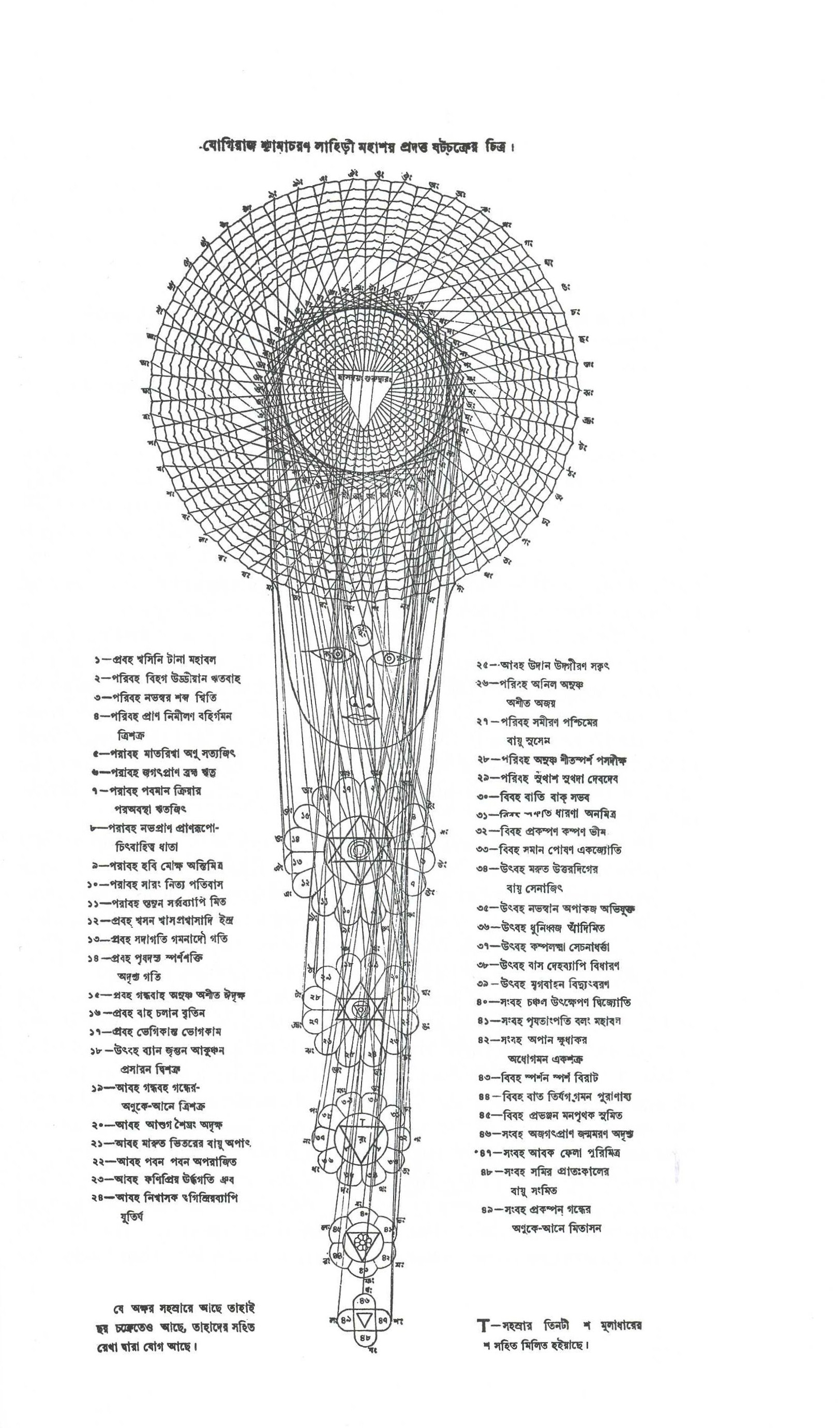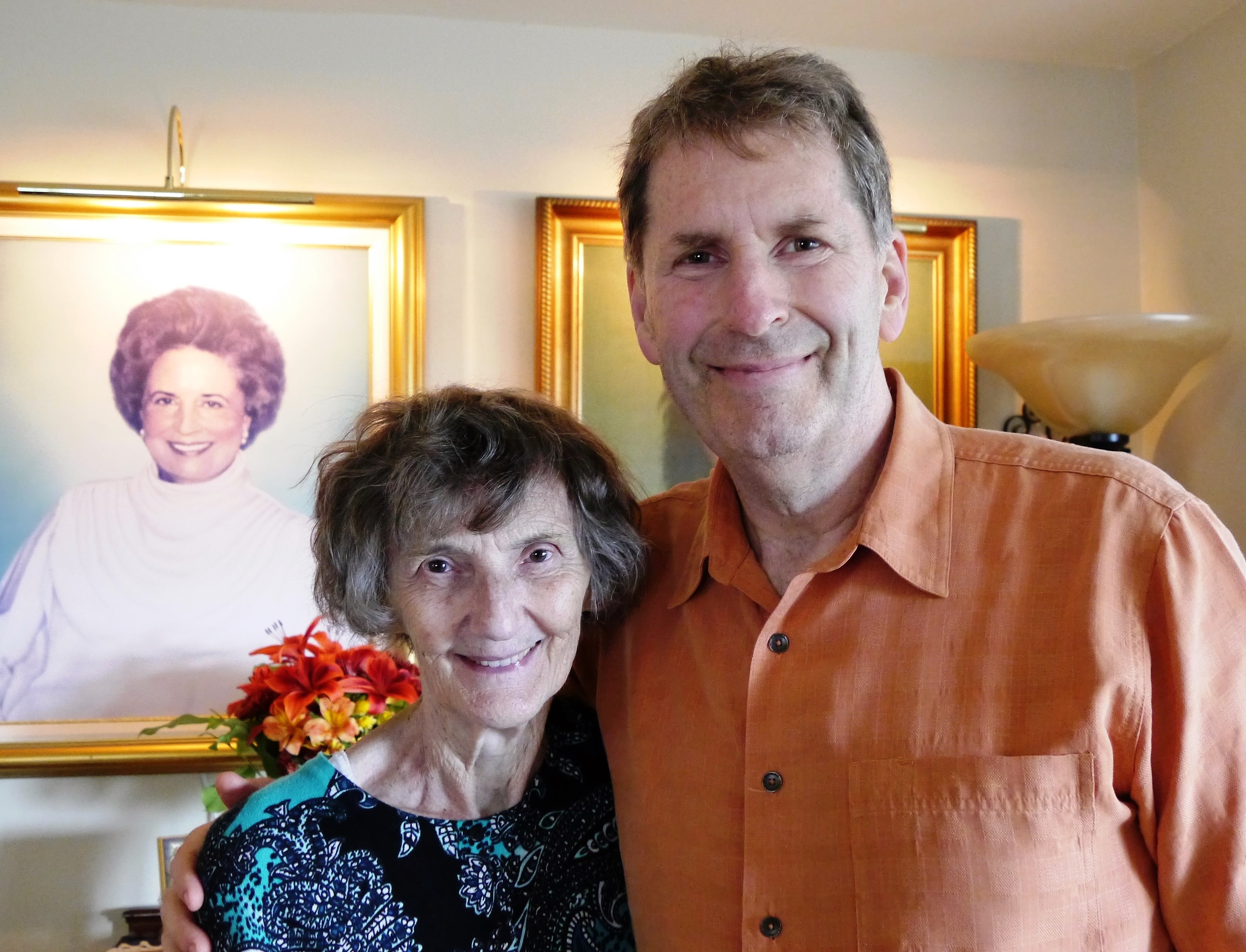
Picture: Mother with her children: Billie, Mother, Gari, and Barbara
By these manifold activities, Lahiri Mahasaya sought to answer the common challenge: “After performing one’s business and social duties, where is the time for devotional meditation?” The harmoniously balanced life of the great householder-guru became the silent inspiration of thousands of questioning hearts. Earning only a modest salary, thrifty, unostentatious, accessible to all, the master carried on naturally and happily in the path of worldly life. (Autobiography of a Yogi; p. 204)
Upon meeting his Sat-guru, Lahiri Mahasaya felt he wanted to stay in the Himalayas with Babaji and company, but his role was to be different—to prove to all that a householder, a future father-to-be and office worker could also be a fully illumined spiritual master. Sri Yukteswarji also had a householder role for many years as did Mother Hamilton. Each one faced the common challenge of how to balance an active life in the world along with the requirement for spiritual discipline that deepens contact with God.
While each had their unique challenges, and each had their own ways of dealing with them, so did they rise to the challenges and go all the way to complete realization. It is tempting to imagine that if you did not have family responsibilities how much easier it would be to focus on God, yet my pilgrimages around this world have shown to me that monks and renunciants do not necessarily make great spiritual progress, even though that is their stated purpose.
Here is a question-answer time in one of Mother’s Talks, when her daughter, a young mother at the time, brought up an important point:
Mother: Now, what are some of the other obstacles to keeping your attention upon God? Yes, Billie?
Billie: Being exhausted. [Mother’s laughter here.] Meditation when your kids are still awake, or waiting ‘til you’re half dead and you’re asleep.
Mother: Well, it is very difficult, I know, when you’re raising youngsters and the exhaustion is an obstacle. I’ve been through all these things, so I have understanding about them; but nevertheless, if your love for God and your Guru is great enough—and I include that because of what I experienced with my own Guru. My love for him was so tremendous! I was so glued to God in him that I was meditating upon his form, upon him, all the days of my life—morning, noon, night and in between. And I think that I probably have lived one of the busiest lives that anybody could. I was lucky if I got four and five hours of sleep a night for years! I had children too, and I had to go out and work for 35 years straight. And it wasn’t exactly what you would call easy or simple to find time to meditate. So I learned to meditate through keeping my consciousness upon God in my Guru—of loving him, of serving him, of putting forth everything that I could to promote his work; to speak to different people whenever I had an opening, a foothold, and all this sort of thing.
Marriage and family are essential parts of a healthy, functioning society. We have seen the damage from families that have not properly formed, or those that have not stayed together—damage to children and adults both. To have a spiritual core to the family makes such a difference. Although this does not guarantee all will go smoothly, it does promise that whatever individual and collective karma there is to go through will be greatly helped when a spiritual core is made and kept in the family.
Children will ultimately respect what parents respect. It doesn’t mean that children will always follow their parent’s spiritual path, but a seed is planted in the child’s mind that will remain—sometimes dormant and sometimes coming to full fruition in this life. We can think spiritual parents will assure that children will behave, be ok, not have major obstacles, but that does not respect the child’s own karma he or she has come with, or free will. It is beautiful when children do feel spiritual kinship with their parents and family, but that is always an individualistic choice. Even a spiritual seed that lies dormant in a soul for years or even lifetimes will ultimately greatly benefit a soul—who knows how many such examples we have had over many lifetimes that culminate in our focus upon, and desire for, God alone?
Each of us must find our balance in family life, to give unto Caesar that which is Caesar’s, and unto God what is God’s. (Mark 12:17) To love and care for those who God has given to us, and all the while be free of the idea that “I am the doer,” and attachment to outcomes. What makes us know we are making progress? It is the increasing spiritual freedom we experience even while discharging our worldly duties. Whether it is running a company or washing the dishes, we feel God’s Presence with us—His strength, joy and wisdom flowing through us at all times. The family home is our ashram, and just like a monk’s ashram, the everyday chores must still be done, food selected and lovingly prepared, work that supplies the needs for food, shelter and more, as well as working through the rough edges of interrelationships that rub up against one another. Our home is our ashram, and what makes it so is our love, dedication and surrender to God.
Let us love the life God has given us, and while we can make plans to build a future that serves us perfectly, we also love life in the process—what we have right here, in this place and at this time. The love and gratitude for what you have now opens the door for God to create through you all He wishes to express in your life. And His will for you, even when it challenges you to your core, is in truth pure ananda-joy. His love, His wisdom thoughts, His bliss are not for some distant future in your life, but are with you even now when you are fully open to it. This is what was discovered by Lahiri Mahasaya, Sri Yukteswarji and Mother while living in their family-ashrams. This life is a voyage of God-discovery, and your family is not a distraction, but the very means by which you attain the universal vision.



 Earlier this week our dear Treva Koler left the body. Treva is mother of Reverend Larry Koler and a kriyaban; she has been a member of our Seattle Group for these past forty years. Treva has seven children, and a recent family gathering counted nearly forty family members; amazing to think from two to 37 in a lifetime. Treva was 90 years old when she peacefully passed, surrounded by family. Until the end she had an active intelligence and keen awareness.
Earlier this week our dear Treva Koler left the body. Treva is mother of Reverend Larry Koler and a kriyaban; she has been a member of our Seattle Group for these past forty years. Treva has seven children, and a recent family gathering counted nearly forty family members; amazing to think from two to 37 in a lifetime. Treva was 90 years old when she peacefully passed, surrounded by family. Until the end she had an active intelligence and keen awareness. 

 My dear Ones,
My dear Ones,